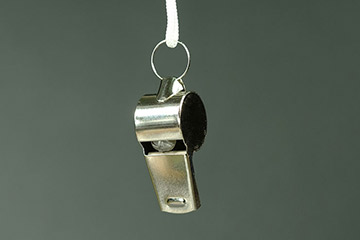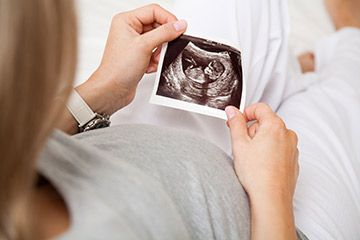The "Bella Donna" floor now also available to men
28 May 2014
Also men are now allowed to book a room on the "Bella Donna" floor - the design of hotel floors for women only is discriminatory. This was established by the Danish Eastern High Court by judgment of 25 April 2014.
In this case, one of the largest hotels in the country had established a floor for women only. This floor had a number of additional amenities not to be found on the other floors, including special toilet ware, flowers, and a particularly efficient hand shower. Also, special measures for the protection of privacy had been taken on that particular floor.
According to the hotel, men were not treated in a less favourable manner. The hotel had two towers and men could book rooms at the same price with a corresponding view in the other tower where there also were two rooms with the same amenities as on the women-only floor. Furthermore, the hotel was of the opinion that a potential discrimination, if any, was based on legitimate purposes in the form of safety and security for women, considerations of privacy and decency, protection against sexism and sexual harassment and the promotion of equality between genders.
The Danish Board of Equal Treatment had deemed that men were treated in a less favourable manner because they were forbidden access to the mentioned floor exclusively due to their gender. The Board found that a service provider's decision on a physical separation of men and women in connection with the offering of services quite evidently fell within the core area of the Danish Act on Equal Treatment of Men and Women. Consequently, the women-only floor was deemed to be downright discrimination.
The Board of Equal Treatment rejected the argument that the discrimination should be based on legitimate purposes, since the reason for the physical separation was based on commercial considerations in order to attract a special group of customers; the Board regarded the considerations upheld by the hotel as hindsight. Also, the Board attached importance to the fact that none of the 19 women, whom the hotel had asked in its survey that formed the basis for the establishment of the women-only floor, had answered that they highly agreed with the argument that staying on a floor dedicated entirely to women would provide security.
In the high-court case, the Board of Equal Treatment claimed that if the establishment of the floor was based on said purposes and if these purposes could be regarded as legitimate, the establishment of the floor did not fulfil the requirement of proportionality as the hotel had not provided evidence that the establishment of the floor was appropriate and necessary to safeguard these purposes.
First, the High Court dismissed the argument that it was necessary to forbid men access to the women's floor in order to safeguard the purposes in question. Therefore, the High Court did not find that the prohibition was based on legitimate purposes.
The question remained whether men were treated in a less favourable manner by being denied access to the floor. Two judges found that this was the case since a male guest would be prevented from booking a room with the same view as a female guest in case the rooms on the 17th floor in the other tower of the hotel were occupied and there were vacant rooms on the women's floor. Also, male guests could be denied having a room at all if the only vacant rooms of the hotel were situated on the women's floor.
One judge rejected the argument that men were treated in a less favourable manner than women by the physical exclusion since they could obtain a room with the same view in the other tower where there also were two rooms with the same amenities as on the women's floor.
The judgment shows that the protection against discrimination due to gender under the Danish Act on Equal Treatment of Men and Women is very far-reaching and that Danish courts will interpret the concept of "treated in a less favourable manner" very broadly.
According to the hotel, men were not treated in a less favourable manner. The hotel had two towers and men could book rooms at the same price with a corresponding view in the other tower where there also were two rooms with the same amenities as on the women-only floor. Furthermore, the hotel was of the opinion that a potential discrimination, if any, was based on legitimate purposes in the form of safety and security for women, considerations of privacy and decency, protection against sexism and sexual harassment and the promotion of equality between genders.
The Danish Board of Equal Treatment had deemed that men were treated in a less favourable manner because they were forbidden access to the mentioned floor exclusively due to their gender. The Board found that a service provider's decision on a physical separation of men and women in connection with the offering of services quite evidently fell within the core area of the Danish Act on Equal Treatment of Men and Women. Consequently, the women-only floor was deemed to be downright discrimination.
The Board of Equal Treatment rejected the argument that the discrimination should be based on legitimate purposes, since the reason for the physical separation was based on commercial considerations in order to attract a special group of customers; the Board regarded the considerations upheld by the hotel as hindsight. Also, the Board attached importance to the fact that none of the 19 women, whom the hotel had asked in its survey that formed the basis for the establishment of the women-only floor, had answered that they highly agreed with the argument that staying on a floor dedicated entirely to women would provide security.
In the high-court case, the Board of Equal Treatment claimed that if the establishment of the floor was based on said purposes and if these purposes could be regarded as legitimate, the establishment of the floor did not fulfil the requirement of proportionality as the hotel had not provided evidence that the establishment of the floor was appropriate and necessary to safeguard these purposes.
First, the High Court dismissed the argument that it was necessary to forbid men access to the women's floor in order to safeguard the purposes in question. Therefore, the High Court did not find that the prohibition was based on legitimate purposes.
The question remained whether men were treated in a less favourable manner by being denied access to the floor. Two judges found that this was the case since a male guest would be prevented from booking a room with the same view as a female guest in case the rooms on the 17th floor in the other tower of the hotel were occupied and there were vacant rooms on the women's floor. Also, male guests could be denied having a room at all if the only vacant rooms of the hotel were situated on the women's floor.
One judge rejected the argument that men were treated in a less favourable manner than women by the physical exclusion since they could obtain a room with the same view in the other tower where there also were two rooms with the same amenities as on the women's floor.
The judgment shows that the protection against discrimination due to gender under the Danish Act on Equal Treatment of Men and Women is very far-reaching and that Danish courts will interpret the concept of "treated in a less favourable manner" very broadly.






